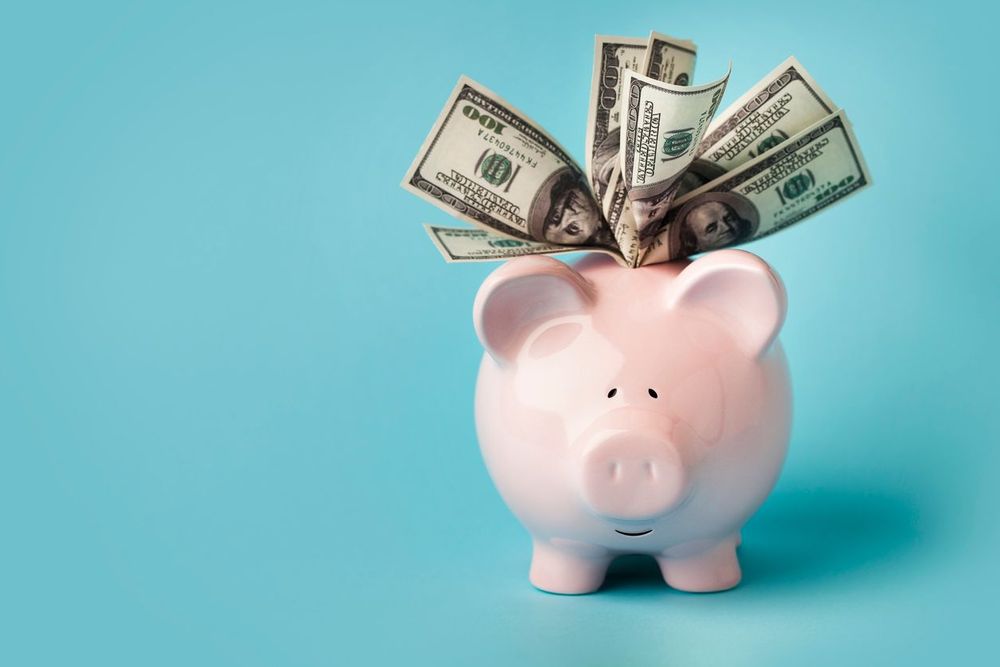
If you lose your job, your biggest concern might be your finances. For most people who are unemployed and seeking work, money is a concern. Some people even rush into jobs they don't want just so they can pay the bills. Before you feel the financial struggle of unemployment, save money with a few easy tips.
If you aren't already tracking your spending, you won't know how to save money. In this day and age, there are many financial apps that can track your spending. Even your bank might offer finance tracking in their app.
The reason you should be tracking your spending is simple. Typically, people don't realize how much money they spend on things they don't need. When you look at how much you spend a month on coffee or alcohol, you might see a simple solution to your money issues.
There's another reason to track your finances. If you want to lose weight, you need to know how much you weigh now. Additionally, you need to know your ideal weight. Once you know exactly how much weight you have to lose, you can set a plan. The same is true of your finances. You might waste a lot of money or practically none. Before you try to set a budget, you have to know the numbers.
Often, people who are unemployed wait to pay their bills. But doing so only causes late fees, bad credit, and much more. Even if you have other priorities, you should pay your bills first. This way, you won't forget to pay or run out of money.
If you don't already have your bills set to auto-pay, don't hesitate. You may be able to customize the payment date, and you can stop worrying about forgetting to pay. Even if a company doesn't offer autopay, you may be able to have your bank automatically pay.
You probably have a few bills that automatically come out of your account. All too often, people forget about their subscriptions. If you're paying for apps or magazines that you don't use, you're wasting money.
Take some time to go through your bank statements. If you have any charges you don't recognize or don't need, find out what they're for. Then, cancel them accordingly. Even if you were only wasting $30 a month, that's still $30 in your pocket.
One of your largest expenses is probably groceries. And although you might always try hard to keep your grocery bill low, you're probably not doing enough. Unless you have a shopping list that you stick to, you're wasting money every time you buy groceries.
Why is a list so important? The grocery store is set up to appeal to your subconscious desires. If you shop around without a list, you're likely to give in to those desires. You could be spending $50 on things you don't actually need. If you have a list, you might find it easier to say no to impulsive buys.
There's also the issue of planning ahead. If you want lower grocery bills, you need to shop strategically. At the gas station, milk costs much more than it does at the grocery store. As you become familiar with local prices, you need to know where you can get the cheapest products. The list makes sure you get everything you need from the right store.
How much money do you spend every day? On average, people spend over $150 a day. Give yourself a break and dedicate a day to not spending any money. Of course, this doesn't mean that you're stuck in the house. You can go to the park, spend time with your family, or attend a free festival. Just make sure you leave your money and cards at home.
For even better results, try to have a "no-spend day" once a week. Over the course of a month, the savings will add up. You might find that you enjoy the break from spending money.
Do you remember that large jar of coins you have hiding in your closet? That could be enough money to get you out of a bind. Although each individual coin isn't worth much, the total amount could be equivalent to hundreds of dollars.
If you don't already have a coin jar, make one. Any time you find a coin or get change from a purchase, put the money in the jar. You can do the same with your digital money as well. Typically, debit and credit cards allow you to round up to the nearest dollar on a purchase. The excess change goes into a savings account.
Over the years, you probably accumulated many things. How many of those items do you actually use? If you go through your spare room or garage, you might find that you have hundreds of dollars worth of unused items. You can sell them on platforms like Facebook Marketplace and OfferUp.
Although it takes time to post your items, the work will eventually pay off. You can make money and clean up your home at the same time. If you have a lot of items to sell, you can host a garage sale or sell them at the flea market.
Don't be afraid to shop at discount and thrift stores. If you need a new interview outfit, don't go to the mall. Instead, find a nice thrift shop and buy an item that looks or is new.
There's nothing wrong with saving money. Don't let your pride stop you from getting some savings.
When money is tight, the best thing you can do is focus on finding a new job. Take a day to focus on your approach and customize your resume. If you haven't had much success lately, think about what you're doing wrong. With some fine-tuning of your resume or interview skills, you can have a job before you know it.
Lorem Ipsum is simply dummy text of the printing and typesetting industry. Lorem Ipsum has been.
